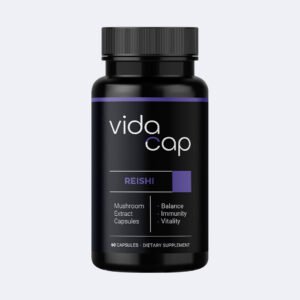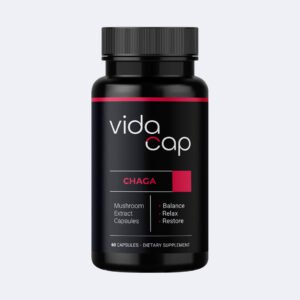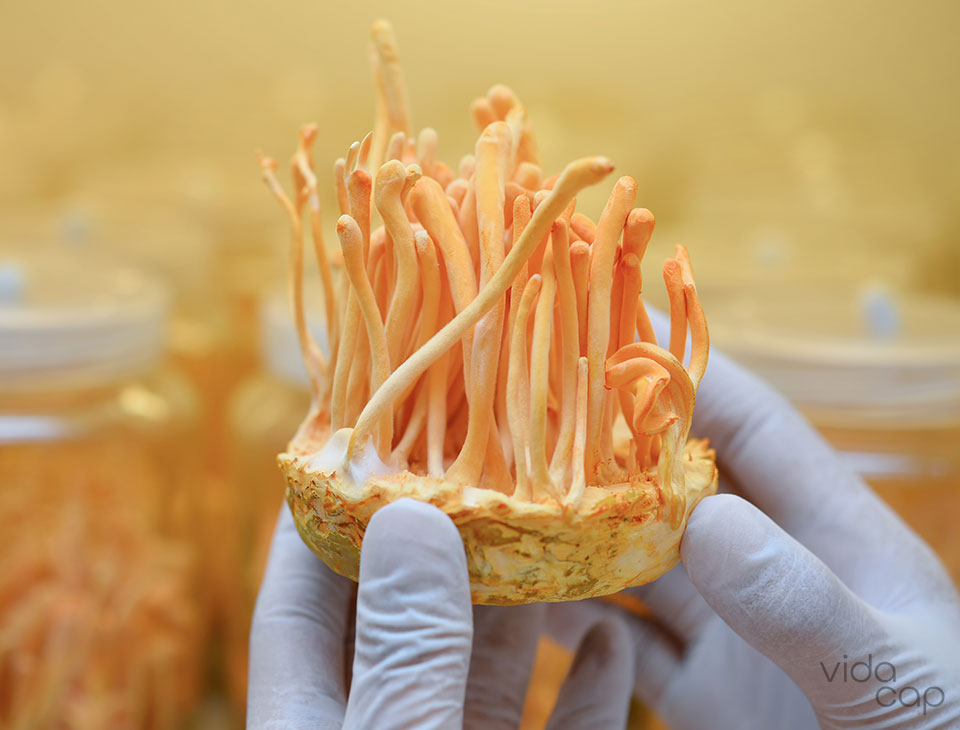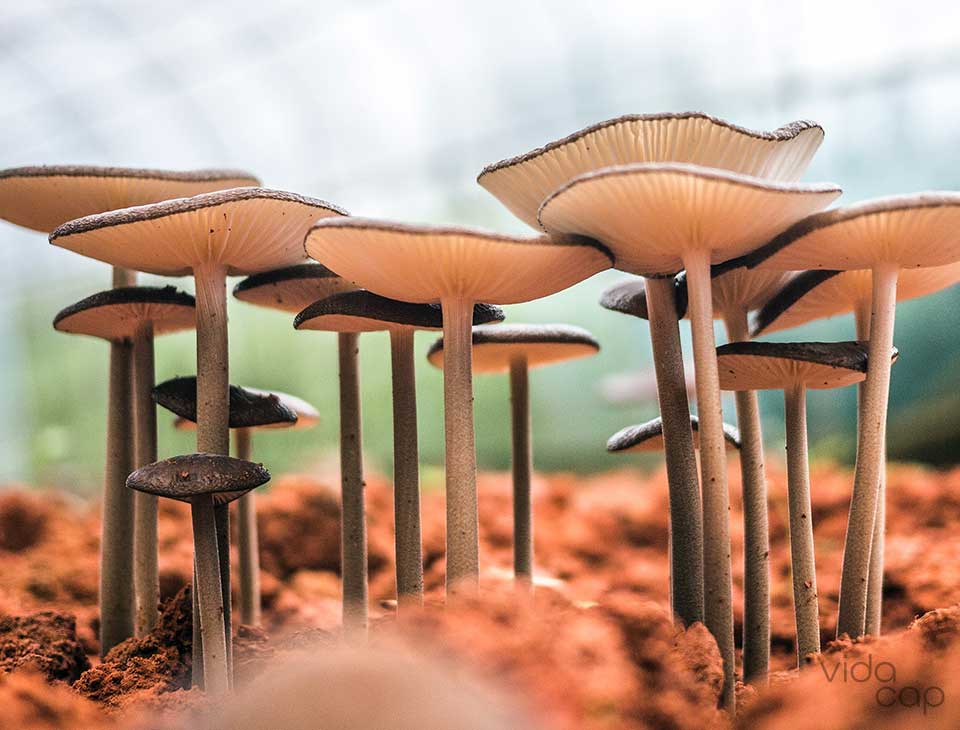
What Are the Effects of Amanita Muscaria?
 Audrey Ferguson |
Updated on: May 15, 2024
Audrey Ferguson |
Updated on: May 15, 2024
Amanita muscaria is famous for many reasons. These include its stunning appearance, crucial ecological role, and unique psychoactive effects.
Many people assume this fungus has similar effects to psilocybin-containing “magic mushrooms” and expect a mind-bending psychedelic trip. However, the active compounds contained within Amanita muscaria affect the brain very differently, and its effects are unlike those of other hallucinogens.
This article explores the effects and side effects of Amanita muscaria and is essential reading for anyone considering trying the mushroom for the first time.
The Extraordinary Effects of Amanita Muscaria
Amanita muscaria differs from most psychoactive fungi, which contain the serotonergic hallucinogen psilocybin. Instead, its primary active compounds are ibotenic acid and muscimol, which act on glutamate and GABA receptors, respectively.
Therefore, although Amanita muscaria is psychoactive, it is generally considered more of a dissociative than a psychedelic. Furthermore, its effects can vary considerably depending on the dosage and how the mushroom is prepared.
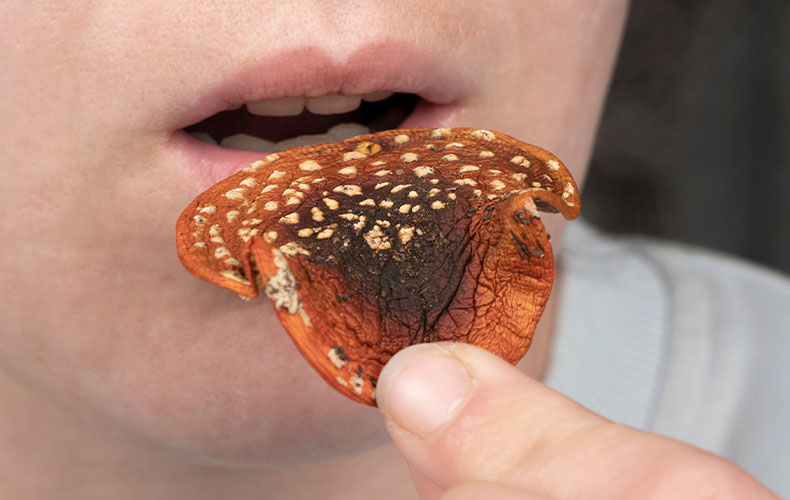
For example, fresh Amanita muscaria mushrooms contain more ibotenic acid than muscimol. Therefore, they tend to mimic the effects of glutamate (an excitatory neurotransmitter) and have more stimulating properties. They are also more likely to cause side effects.
However, when Amanita muscaria is prepared in a specific way, ibotenic acid converts to muscimol. Therefore, prepared Amanita muscaria tends to mimic the effects of GABA (an inhibitory neurotransmitter) and have more relaxing effects. Properly prepared mushrooms are also considered safer to consume.
Physical Effects
The physical effects of Amanita muscaria are very subtle with low doses. They include uncoordinated movement and possibly some nausea or a headache. Higher doses can cause more significant physical effects, such as vomiting or diarrhea, muscle twitches, and possibly seizures. There may also be sweating and excessive salivation or tearing with high doses due to the presence of a chemical called muscarine.
Cognitive Effects
The cognitive effects of Amanita muscaria vary by dose but may include euphoria, disorientation, and dizziness. Users’ depth perception and balance may also be affected.
Another common cognitive effect is drowsiness, often accompanied by a strong desire to sleep or an inability to stay awake. Individuals who fall asleep while under the influence of Amanita muscaria often report vivid or lucid dreams.
Other cognitive effects at high doses include an altered sense of reality, time loops, repetitive thoughts, out-of-body experiences, and a sense of dying or having died. These effects can be terrifying, highlighting the importance of proper preparation and careful dosing.
Visual Effects
Amanita muscaria can cause visual distortions. These may include blurred or double vision, after-images, freeze-frame images, and flashing vision. Some people also describe an enhanced perception of color or closed-eye visuals, such as moving shapes or patterns or even dream-like landscapes representative of another realm.
Auditory Effects
Some people also report auditory distortions, such as increased awareness of the beat of music or hearing rhythms in ordinary sounds like a fan or refrigerator humming.
Multisensory Effects
In some cases, Amanita muscaria may cause a phenomenon called synesthesia. This involves a blending of the senses, such as hearing colors or smelling sounds.

Amanita Muscaria Side Effects
Not all of Amanita muscaria’s effects are pleasant, and some of them could certainly be considered side effects. The best examples include:
- Headaches
- Dizziness
- Nausea
- Vomiting
- Diarrhea
- Sweating
- Excess salivation
- Tearing
- Muscle twitches
- Seizures
There are also concerns surrounding the long-term side effects of Amanita muscaria, particularly ibotenic acid. This compound is a known neurotoxin used in animal studies to create brain lesions similar to those occurring in neurodegenerative diseases.
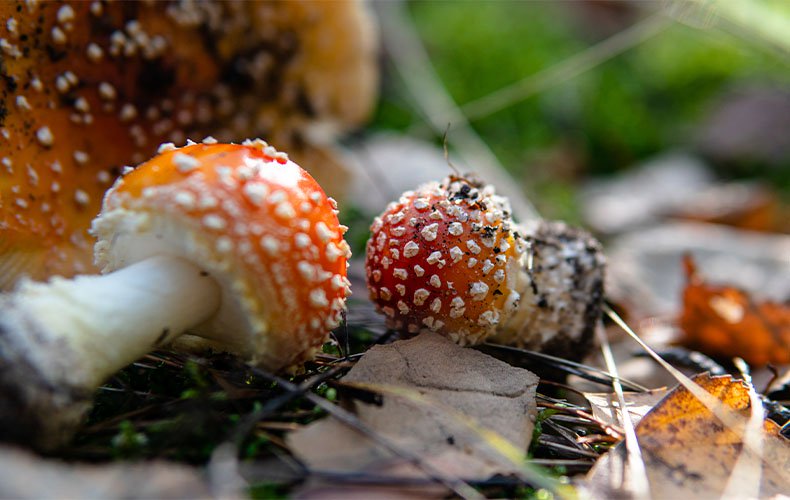
However, these experiments involved injecting the chemical directly into rats’ brains, and it is unclear whether it is equally dangerous when taken orally by humans. Nonetheless, many experts recommend erring on the side of caution and preparing Amanita muscaria to contain as much muscimol and as little ibotenic acid as possible.
Taking Amanita muscaria with other recreational or medicinal substances could increase the risk of side effects and is not advisable. Individuals with pre-existing medical conditions or taking other medications should be aware of potential interactions and consult a physician before using Amanita muscaria.
Final Thoughts on the Effects and Side Effects of Amanita Muscaria
The effects and side effects of Amanita muscaria are highly variable and depend upon the dosage, preparation method, and individual biology.
When using this mushroom for the first time, it is best to start with a minimal dose and increase it very gradually until you reach your desired level of effects. It is also preferable to use well-prepared Amanita muscaria extracts to ensure a high level of muscimol and minimal amounts of ibotenic acid. An alternative is to try professionally manufactured products like amanita gummies to keep track of the dose.
Either way, it is essential to treat this powerful mushroom with respect and consume it responsibly in a safe and comfortable environment.
-
new
 Amanita Muscaria Mushroom GummiesCalm | Mindfulness | Balance$38 Shop now
Amanita Muscaria Mushroom GummiesCalm | Mindfulness | Balance$38 Shop now- Experience a calming and balancing buzz effect.
- 8 Delicious Berry-Mango and Citrus gummies
- 500mg amanita extract per gummy for best results
- Proudly vegan and gluten-free
- Manufactured in the USA with high-quality standards

Audrey has worked as a registered dietitian for 6 years. She graduated from the University of Florida in 2013 with a Bachelor of Science degree. In 2014 she began an internship with the Veterans Affairs Healthcare System, and was hired as an Outpatient Dietitian following graduation. She started her career counseling a variety of patients with different health concerns and disease states. After a few years into practice, she found her passion was working in cancer care, and has spent the last 4 years specializing in oncology nutrition.
In her practice, Audrey has spent a significant amount of time reviewing literature on herbal and dietary supplements in the cancer care setting. Through her work at Vidacap, she hopes to continue to expand her knowledge and understanding of the benefits of supplements in conjunction with promoting a healthy, balanced diet and management of overall health and well being.
Lynn Marie Morski
Reviewed by Lynn Marie Morski, MD, JD, who is a president of the Psychedelic Medicine Association and host of the Psychedelic Medicine Podcast. She sits on the advisory boards of Psychedelics Today, Cybin, VETS, Inc (Veterans Exploring Treatment Solutions), the Oxenberg Foundation, and the Ketamine Task Force.
Read More

 by Lynn Marie Morski, MD
by Lynn Marie Morski, MD
